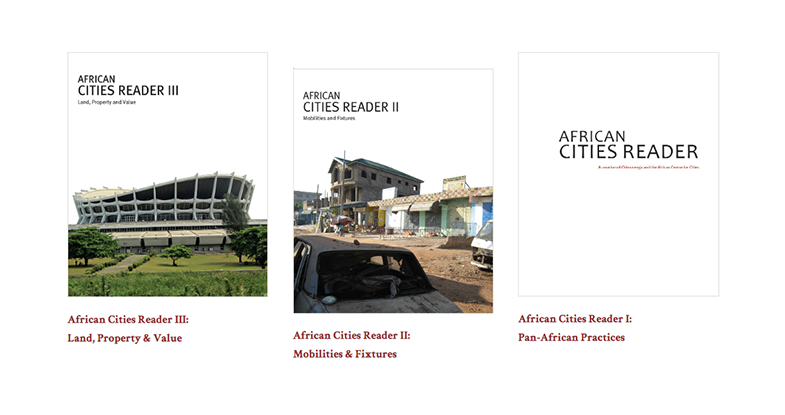Eine facettenreiche Zusammenstellung von Texten, die sich aus verschiedensten Perspektiven auf akademische, künstlerische, aktivistische, poetische Weise afrikanischer Urbanität widmen. Von den üblichen Übertreibungen, Karikaturen, Stereotype oder einfach nur moralistischen Quatsch, der in so ziemlich allen akademischen und populärkulturellen Veröffentlichungen zu disem Thema zu finden sei, hätten die Herausgebenden die Nase voll: “The African Cities Reader seeks to call this state of affairs to order. We are not interested in comprehensive explanations or answers. Instead, we are attracted to an aesthetic agenda that can capture something about the stylisation of thought and practice as it emerges from the complex indeterminacies of city-making, city-burning and city-dreaming”, schreiben sie im Vorwort ihrer ersten Ausgabe.
Das Kooperationsprojekt zwischen dem African Centre for Cities an der University of Cape Town und der pan-afrikanischen Plattform “Chimurenga” veröffentlicht alle zwei Jahre umfangreiche Kataloge zu Phänomenen, Geschichten und Perspektiven urbanen Lebens auf dem afrikanischen Kontinent.
Unter den Titeln
erschienen bis dato drei Ausgaben des “African Cities Reader”, alle drei können hier bestellt beziehungsweise unter diesem Link kostenlos gelesen und heruntergeladen werden.”
Über den African Cities Reader schreiben die Macher*innen selbst: “the African Cities Reader seeks to become a forum where Africans will tell their own stories, draw their own maps and represent their own spatial topographies as it continuous to evolve and adapt at the interstice of difference, complexity, opportunism, and irony. […] In terms of focus, tone and sensibility, the ACR is vibrant, unapologetic, free, accessible and open, provocative, fresh, not take itself too seriously, but also be rigorous and premised on the assumption that it will grow and evolve over time. It is open to multiple genres (literature, philosophy, faction, reportage, ethnographic narrative, etc), forms of representation (text, image, sound and possibly performance), and points of view.”

